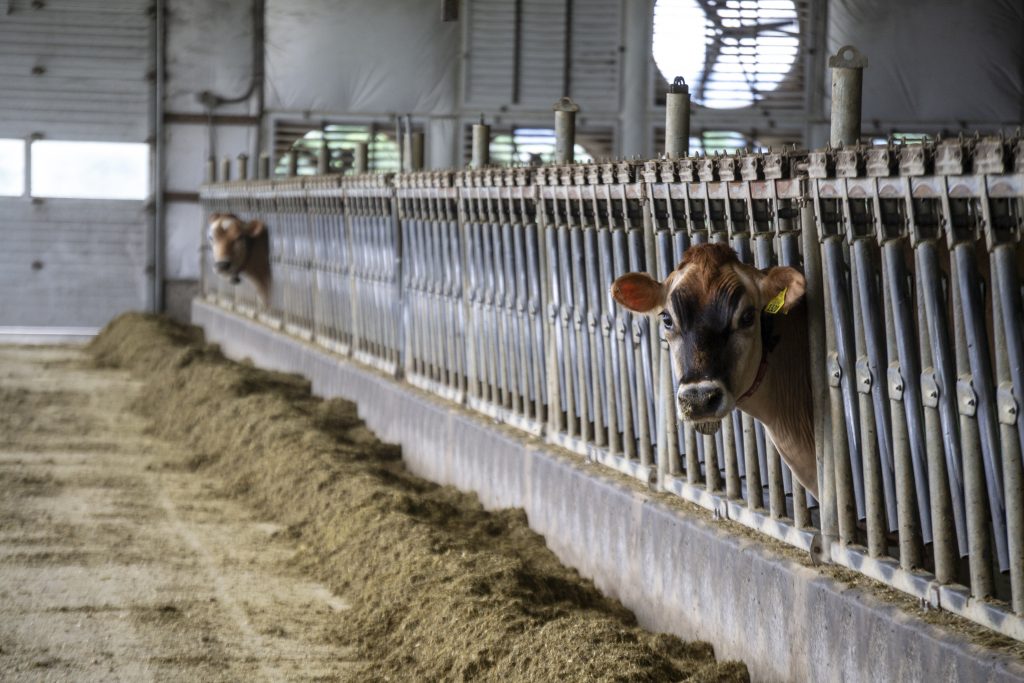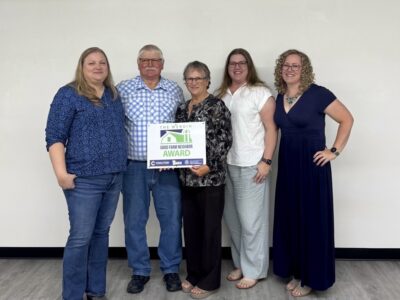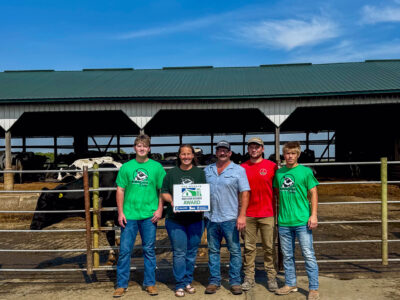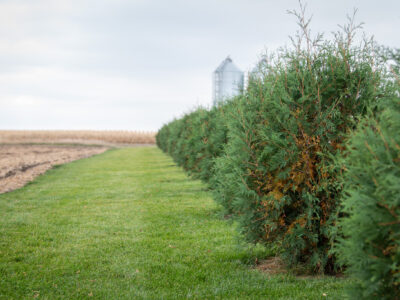CSIF helps producers comply with the rules
08-01-2019 in Article
WEST DES MOINES, IOWA – August 1, 2019 – No one wants the call. It’s the DNR or the EPA on the phone, and your operation is slated for inspection.
Coalition to Support Iowa’s Farmers Senior Field Coordinator Kent Mowrer says CSIF can help relieve some of that feeling of panic. Their understanding of the process can be an invaluable resource.
“If it’s the DNR, they likely are unfamiliar with your place and have questions about the size and animal capacity and just want to take a look,” he says. 
In 2010, the Iowa DNR entered into an agreement with the EPA to inspect livestock operations for regulatory compliance on behalf of the EPA, and according to EPA parameters there are 250 pages of rules and regulations with which farmers must comply. Even though that cooperative work plan has expired, it did cause the DNR to realize it had little knowledge of several operations.
“The DNR is generally good to work with and will set up a time for the inspection with a few days notice,” says Mowrer. “That’s when you can call us to help. We can help determine what they may be looking for and how to prepare for a farm visit.”
Once the inspection is done and the exit interview complete, CSIF can advise the producer in correcting any concerns.
“We can help you understand your options for changes so you can continue to operate in compliance,” says Mowrer.
He says in some cases, the DNR will refer the producer to CSIF for their expertise.
Knowing the options
The EPA is different. “If they are coming, they have already done their due diligence,” says Mowrer. “They have maps, have probably done a drive-by, and have reason to suspect there is a concern about discharge into a Waters of the U.S. (WOTUS) water source.”
The EPA operates more “in the realm of the regulatory” and will conduct its investigation independent of the DNR. Any livestock operation of more than 1,000 head near a water source is of interest, especially those with little record with the state. The EPA will seldom give more than a day or so notice, and there is little aside from possibly a death in the family that will delay the process.
“They are focused on proving what they believe,” says Mowrer, “and they allow no time for corrections before they get there.”
In that case, the role of CSIF is to work with farmers to explain the process and their options. “In many cases, they will need to seek legal counsel to defend their position,” says Mowrer. It takes around two months to receive the final inspection report, and if there are violations, fines can be hefty. So can the legal fees, with only a handful of attorneys in the state experts on livestock operation issues.
“The EPA assumes the farmer has done his or her due diligence to know their rights,” he adds. “We’re here to help farmers understand that process and where to turn for further advice.”
In some cases, CSIF refers the producer to an agricultural engineer for corrective action.
Mowrer stresses that each individual case is unique, and ultimately, the operator must make his or her own decisions. But at no cost, CSIF’s expertise with animal unit siting and environmental regulations, as well as knowledge of the agencies’ operational procedures, can help provide confidence in making those decisions.
Doing it right the first time
The best way to avoid problems, says Mowrer, is to do things right from the beginning. “When we work with producers siting new livestock facilities, our goal is to help them understand how the rules and regulations apply to them so they are set up for success when that inspection occurs.”
 For livestock operations that have been in existence for a few generations, things are a little more complex, and the CSIF expertise just as valuable.
For livestock operations that have been in existence for a few generations, things are a little more complex, and the CSIF expertise just as valuable.
“Most of those operations didn’t start at 600 head,” says Mowrer. “They began with maybe 200 head. And priorities were different. In the late 1800s or early 1900s, close proximity to water and pasture were the main concerns. Pollution wasn’t something they thought about. Now, they’ve grown over time, and the regulations have changed to accommodate concern about polluting water sources and flooding. We can bring in that fresh set of eyes to determine how that operation stacks up under today’s rules and what changes need to be made.”
Rules change, and CSIF is on top of those changes, ready to make sure livestock production in Iowa is done right.
With CSIF’s knowledge of the regulations and regulatory process, Iowa’s livestock producers can ensure their operations meet code and maintain profits, with no need to fear the inspection experience.
“We’re here to help livestock farms stay in existence and provide opportunities for the next generation,” says Mowrer. “CSIF is only a phone call away.” Farmers wanting a helping hand can contact the coalition at 1-800-932-2436 or visit www.supportfarmers.com
The Coalition to Support Iowa’s Farmers was created by farmers to help farmers raise livestock successfully and responsibly. It’s a partnership involving the Iowa Beef Industry Council, Iowa Cattlemen’s Association, Iowa Corn Growers Association, Iowa Farm Bureau Federation, Iowa Pork Producers Association, Iowa Poultry Association, Iowa Soybean Association, Iowa Turkey Federation and Midwest Dairy Association. The non-profit, non-partisan organization aids farmers at no cost. CSIF does not lobby or develop policy.
(By Terri Queck-Matzie for CSIF. Queck-Matzie is a freelance writer from Greenfield).
-30-
Recommended News

Southeast Iowa farm family honored for contributions to their community, care for their land and livestock
Mike and Diana, along with the help of Mike’s brother Mark, operate Rysdam Family Farm, a diversified cow/calf beef cattle operation that also raises corn, soybeans, hay, wheat and oats....
Read More
Multi-generational Bremer County family to be honored during a ceremony at their farm
Jeremy and Sara Ebaugh, along with their three sons, John, Joe, and Jeb, operate Ebaugh Dairy, a fourth-generation farm that is home to Holstein dairy cows, a cow/calf herd and...
Read More
Green Farmstead Partner Program Supports Boone County Family in Adopting Sustainable Practices
Rod and Missy Bice of Boone County have sought guidance from the Coalition to Support Iowa's Farmers (CSIF) for help with rules and regulations regarding their livestock farm, Golden Circle...
Read More